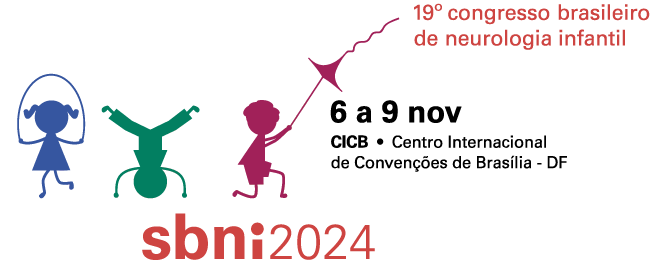Dados do Trabalho
Título
PROBIOTICS AND AUTISM SPECTRUM DISORDER: EVALUATION OF EFFECTS ON THE GUT MICROBIOME AND ASSOCIATED SYMPTOMS
Introdução
Autism Spectrum Disorder (ASD) significantly impacts the social, cognitive and gastrointestinal spheres of children, affecting almost 70% of cases. Studies show that microbiome imbalance in these patients is associated with behavioral and gastrointestinal exacerbations. Therefore, understanding the gut microbiome is crucial for analyzing the symptoms of ASD, considering the importance of the gut-brain axis.
Objetivo
To evaluate the efficacy of the use of probiotics in improving behavioral and gastrointestinal symptoms in children with ASD.
Método
This is an integrative review of the literature with a searching in the PubMed database, using the descriptors “Autism” AND “Probiotics” AND “Gastrointestinal Microbiome”. Articles in English and Spanish published in the last five years were included.
Resultados
In all the analyzed articles, there is a consensus that the gastrointestinal microbiome of patients with ASD presents high bacterial diversity, with an increase in Bacteroides and Clostridium and a reduction in Lactobacillus and Bifidobacterium, in addition to a predominance of cytokines and inflammatory activity. Administration of probiotics may increase beneficial anti-inflammatory strains, such as Lactobacillus Plantarum, which may be able to improve gastrointestinal symptoms, global functioning, and communication, highlighting the importance of the gut-brain axis in ASD. Although studies on the use of probiotics in the treatment of autism spectrum disorder (ASD) are still recent and based on small sample sizes, there are promising indications. Probiotics may improve gastrointestinal symptoms such as constipation and diarrhea, as well as behavioral symptoms, possibly by influencing the synthesis of serotonin (5-HT) and short-chain fatty acids. The mechanism of action of probiotics in ASD is not yet fully understood, but it is known that they affect neurotransmitters such as serotonin (5-HT) and gamma-aminobutyric acid (GABA), in addition to influencing the production of oxytocin, which can lead to improvements in behavioral and affective symptoms associated with ASD.
Conclusão
Therefore, despite the methodological limitations and the preliminary nature of the research, the results indicate a promising potential in probiotic supplementation, reinforcing the need for further studies with greater methodological rigor and larger samples to confirm the benefits observed.
Referências
- ARNOLD, L. E. et al. Probiotics for Gastrointestinal Symptoms and Quality of Life in Autism: A Placebo-Controlled Pilot Trial. Journal of Child and Adolescent Psychopharmacology, v. 29, n. 9, p. 659-669, nov. 2019. DOI: 10.1089/cap.2018.0156. Disponível em: https://pubmed.ncbi.nlm.nih.gov/31478755. Acesso em: 24 jul. 2024.
- WANG, Y. et al. Probiotics and fructo-oligosaccharide intervention modulate the microbiota-gut brain axis to improve autism spectrum reducing also the hyper-serotonergic state and the dopamine metabolism disorder. Pharmacological Research, v. 157, p. 104784, jul. 2020. DOI: 10.1016/j.phrs.2020.104784. Disponível em: https://pubmed.ncbi.nlm.nih.gov/32305492. Acesso em: 24 jul. 2024.
- IGLESIAS-VÁZQUEZ, L.; VAN GINKEL RIBA, G.; ARIJA, V.; CANALS, J. Composition of Gut Microbiota in Children with Autism Spectrum Disorder: A Systematic Review and Meta-Analysis. Nutrients, v. 12, n. 3, p. 792, 17 mar. 2020. DOI: 10.3390/nu12030792. Disponível em: https://pubmed.ncbi.nlm.nih.gov/32192218. Acesso em: 24 jul. 2024.
- LIGEZKA, A. N. et al. A systematic review of microbiome changes and impact of probiotic supplementation in children and adolescents with neuropsychiatric disorders. Progress in Neuropsychopharmacology & Biological Psychiatry, v. 108, p. 110187, 8 jun. 2021. DOI: 10.1016/j.pnpbp.2020.110187. Disponível em: https://pubmed.ncbi.nlm.nih.gov/33271210. Acesso em: 24 jul. 2024.
- PATEL, M. et al. A Systematic Review of Mixed Studies Exploring the Effects of Probiotics on Gut-Microbiome to Modulate Therapy in Children With Autism Spectrum Disorder. Cureus, v. 14, n. 12, p. e32313, 8 dez. 2022. DOI: 10.7759/cureus.32313. Disponível em: https://pubmed.ncbi.nlm.nih.gov/36632246. Acesso em: 24 jul. 2024.
- LEWANDOWSKA-PIETRUSZKA, Z.; FIGLEROWICZ, M.; MAZUR-MELEWSKA, K. Microbiota in Autism Spectrum Disorder: A Systematic Review. International Journal of Molecular Sciences, v. 24, n. 23, p. 16660, 23 nov. 2023. DOI: 10.3390/ijms242316660. Disponível em: https://pubmed.ncbi.nlm.nih.gov/38068995. Acesso em: 24 jul. 2024.
- ZENG, P. et al. Effect of probiotics on children with autism spectrum disorders: a meta-analysis. Italian Journal of Pediatrics, v. 50, n. 1, p. 120, 21 jun. 2024. DOI: 10.1186/s13052-024-01692-z. Disponível em: https://pubmed.ncbi.nlm.nih.gov/38902804. Acesso em: 24 jul. 2024.
- DAVIES, C. et al. Altering the gut microbiome to potentially modulate behavioral manifestations in autism spectrum disorders: A systematic review. Neuroscience and Biobehavioral Reviews, v. 128, p. 549-557, set. 2021. DOI: 10.1016/j.neubiorev.2021.07.001. Disponível em: https://pubmed.ncbi.nlm.nih.gov/34271306. Acesso em: 24 jul. 2024.
- YANG, J. et al. Effects of gut microbial-based treatments on gut microbiota, behavioral symptoms, and gastrointestinal symptoms in children with autism spectrum disorder: A systematic review. Psychiatry Research, v. 293, p. 113471, nov. 2020. DOI: 10.1016/j.psychres.2020.113471. Disponível em: https://pubmed.ncbi.nlm.nih.gov/33198044. Acesso em: 24 jul. 2024.
- SKOWRON, K. et al. The Role of Psychobiotics in Supporting the Treatment of Disturbances in the Functioning of the Nervous System: A Systematic Review. International Journal of Molecular Sciences, v. 23, n. 14, p. 7820, 15 jul. 2022. DOI: 10.3390/ijms23147820. Disponível em: https://pubmed.ncbi.nlm.nih.gov/35887166. Acesso em: 24 jul. 2024.
- BONNECHÈRE, B.; AMIN, N.; VAN DUIJN, C. The Role of Gut Microbiota in Neuropsychiatric Diseases - Creation of An Atlas-Based on Quantified Evidence. Frontiers in Cellular and Infection Microbiology, v. 12, p. 831666, 14 mar. 2022. DOI: 10.3389/fcimb.2022.831666. Disponível em: https://pubmed.ncbi.nlm.nih.gov/35360098. Acesso em: 24 jul. 2024.
Palavras Chave
AUTISM SPECTRUM DISORDER; Probiotics; Gastrointestinal Microbiome
Área
Transtornos neuropsiquiátricos e distúrbios de aprendizagem
Autores
KATHLEN OLIVEIRA MARTINS TIEDE, LUANA HAMMACHER, THALLIANY CRISTINA RIBEIRO SOBRINHO, DANIEL AUGUSTO CARLOS SILVA, ALINE ANGELICA PERES GUERREIRO, GEOVANA ALEIXO CARVALHO, SABRINA FELIS COSTA, THANIELLE SOUZA SILVA BRITO, RICARDO BARBOSA ARAUJO CARNEIRO
